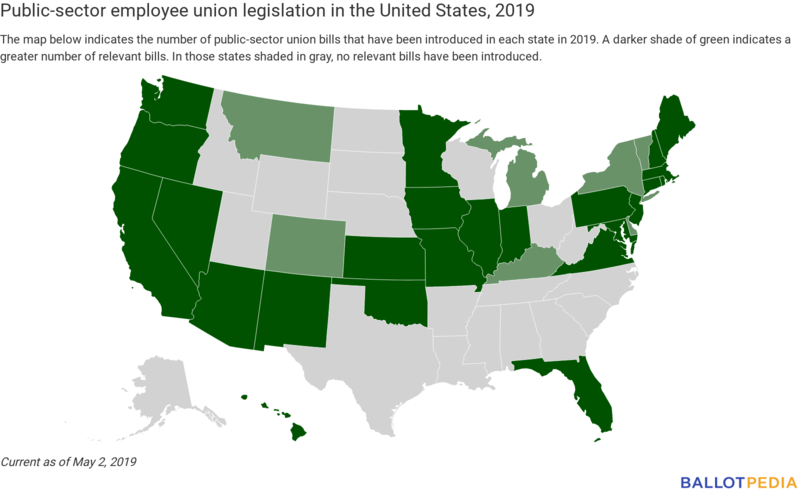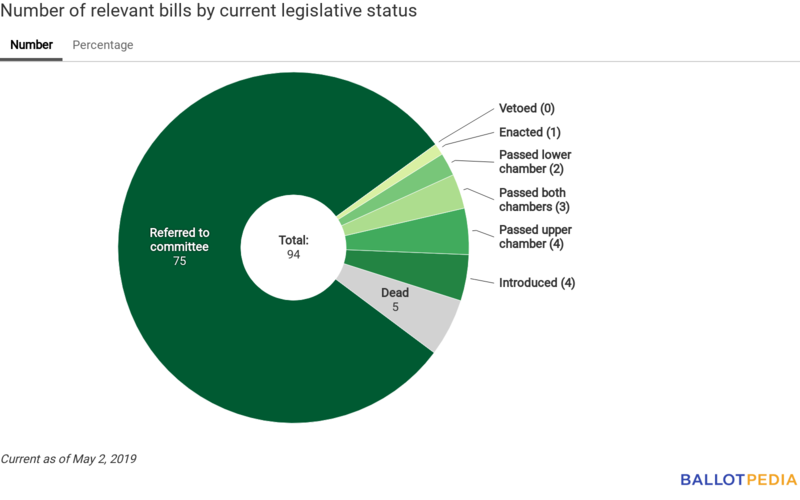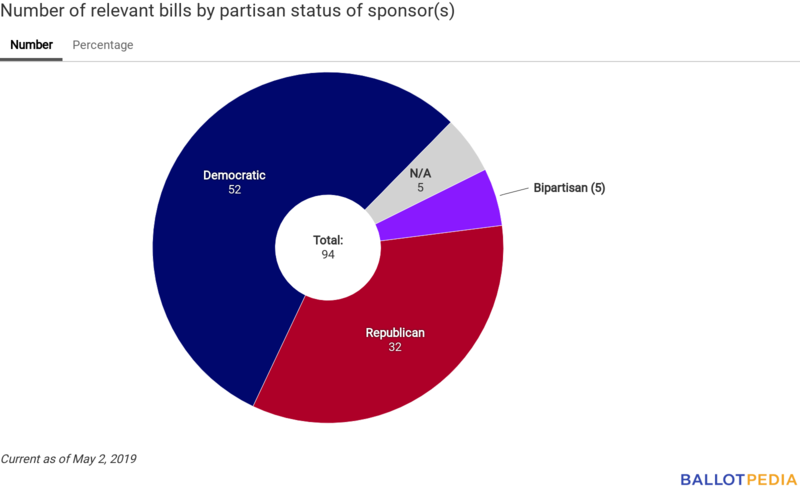Union Station: May 3, 2019
Welcome to Union Station, our weekly newsletter that keeps you abreast of the legislation, national trends, and public debate surrounding public-sector union policy. This week, we shine a spotlight on Illinois, where state workers recently sued AFSCME to recover more than $2 million in previously paid agency fees.
State spotlight: Illinois state workers sue AFSCME to recover $2 million in agency fees
On May 1, 2019, nine current and former Illinois state workers filed a class action lawsuit against AFSCME Council 31 in U.S. District Court to recover more than $2 million in agency fees previously paid by approximately 2,700 state workers.
- Who are the parties to the suit? The plaintiffs are nine Illinois state workers: Blake Leitch, Sheri Lash, Beth Pollo, Heidi Parent, Jim Sodaro, Toni Head, Connie Ameter, Tairance McGee, and Jack DeHeve. The Liberty Justice Center and the National Right to Work Legal Defense Foundation represent the plaintiffs. The defendant is AFSCME Council 31.
- More about AFSCME Council 31: AFSCME (American Federation of State, County, and Municipal Employees) Council 31 represents public-sector workers in Illinois. According to a report filed with the U.S. Department of Labor, there were 57,000 dues-paying members as of April 1, 2019. The union's receipts totaled $43,647,404 at that time, $22,017,458 of which came from dues. Its disbursements totaled $46,154,453.
- What is at issue? On June 27, 2018, the U.S. Supreme Court ruled in Janus v. AFSCME that public-sector unions cannot require non-member employees to pay agency fees covering the costs of non-political union activities. Plaintiffs allege that, after May 1, 2017, AFSCME Council 31 "should have known that its seizure of [agency fees] from non-consenting employees violated the First Amendment." The plaintiffs, therefore, seek to recover for themselves and for all affected workers the full amount of all fees deducted from their wages between May 1, 2017, and June 27, 2018, plus interest. In a press release, the Liberty Justice Center said, "If successful, [the plaintiffs] and more than 2,700 other state employees in Illinois could recoup more than $2 million that the union took from them."
- What are the responses?
- Noting that the Liberty Justice Center and National Right to Work Legal Defense Foundation represented the plaintiff in Janus, Liberty Justice Center President Patrick Hughes told Fox News, "We're putting the band back together. The argument is once something is deemed to be unconstitutional [in the civil context] -- agency fees -- then they're deemed to be retroactively unconstitutional. ... We're taking the position that those fees should be refunded to those nonmembers."
- In a statement released to WSIL News 3, AFSCME Public Affairs Director Anders Lindall said, "The anti-worker, corporate-funded front groups behind this litigation recently brought the same case in the name of Mark Janus and lost. The federal district court in Chicago found that Council 31 acted in good faith when it collected fees from Janus—consistent with a U.S. Supreme Court ruling of 40 years' standing—to help pay the costs of representing all workers. That ruling echoes what more than a dozen other federal and state courts have decided in similar cases."
- The case was filed as a class-action lawsuit in the U.S. District Court for the Northern District of Illinois. The case name and number are Leitch v. AFSCME Council 31, 1:19-cv-02921.
The big picture
Number of relevant bills by state
We are currently tracking 94 pieces of legislation dealing with public-sector employee union policy. On the map below, a darker shade of green indicates a greater number of relevant bills. Click here for a complete list of all the bills we're tracking.
Number of relevant bills by current legislative status
Number of relevant bills by partisan status of sponsor(s)
Recent legislative actions
Below is a complete list of legislative actions on relevant bills since the beginning of the year. Bills are listed in alphabetical order, first by state and then by bill number.
- California AB314: This bill would require employers to grant employees paid time for certain union activities.
- Appropriations Committee hearing May 1.
- Maine LD1451: This bill would grant collective bargaining agents greater access to employees and employee information. It would also authorize unions to use government buildings for meetings.
- Labor and Housing Committee hearing May 1.
- Massachusetts H2188: This bill would allow employers to require employees to pay a service fee to a union as a condition of employment.
- Joint Committee on Public Service hearing May 1.
- Massachusetts H2363: This bill would authorize unions to refrain from representing non-members.
- Joint Committee on Labor and Workforce Development hearing April 30.
- Massachusetts H2385: This bill would authorize employers to disclose personal employee information to unions.
- Joint Committee on Labor and Workforce Development hearing April 30.
- Massachusetts S1043: This bill would authorize unions to charge fees to non-members to pay for the costs of representation. It would also require public employers to provide unions access to employees.
- Joint Committee on Labor and Workforce Development hearing April 30.
- New Hampshire SB19: This bill would prohibit disclosure of information regarding a public employee's home address, email address, or phone number. An exemption would be made for unions.
- House Labor, Industrial, and Rehabilitative Services executive session May 1.
- New Hampshire SB148: This bill would require public employers to notify hirees of their right to join or refrain from joining a union. The notification would also include the estimated annual cost of joining a union.
- House Labor, Industrial, and Rehabilitative Services executive session May 1.
- Rhode Island S0712: This bill would authorize unions to impose fees on non-members for administrative matters. It would require employers to notify unions within five days of hiring new employees. It would also require employees to file written notice with the state controller in order to discontinue dues payroll deductions.
- Labor Committee hearing May 1.
- Washington HB1575: This bill would declare that public employers and public-sector unions are not liable for claims involving agency fees paid to unions prior to Janus. It would repeal statutes requiring employees to join unions or pay dues as a condition of employment. It would also amend dues deduction authorization laws, allowing authorizations to be initiated via electronic, voice, or written communication. Discontinuing authorizations would require a written request sent to the union.
- Delivered to governor April 26.
See also
| |||||||||||||||||||||||





